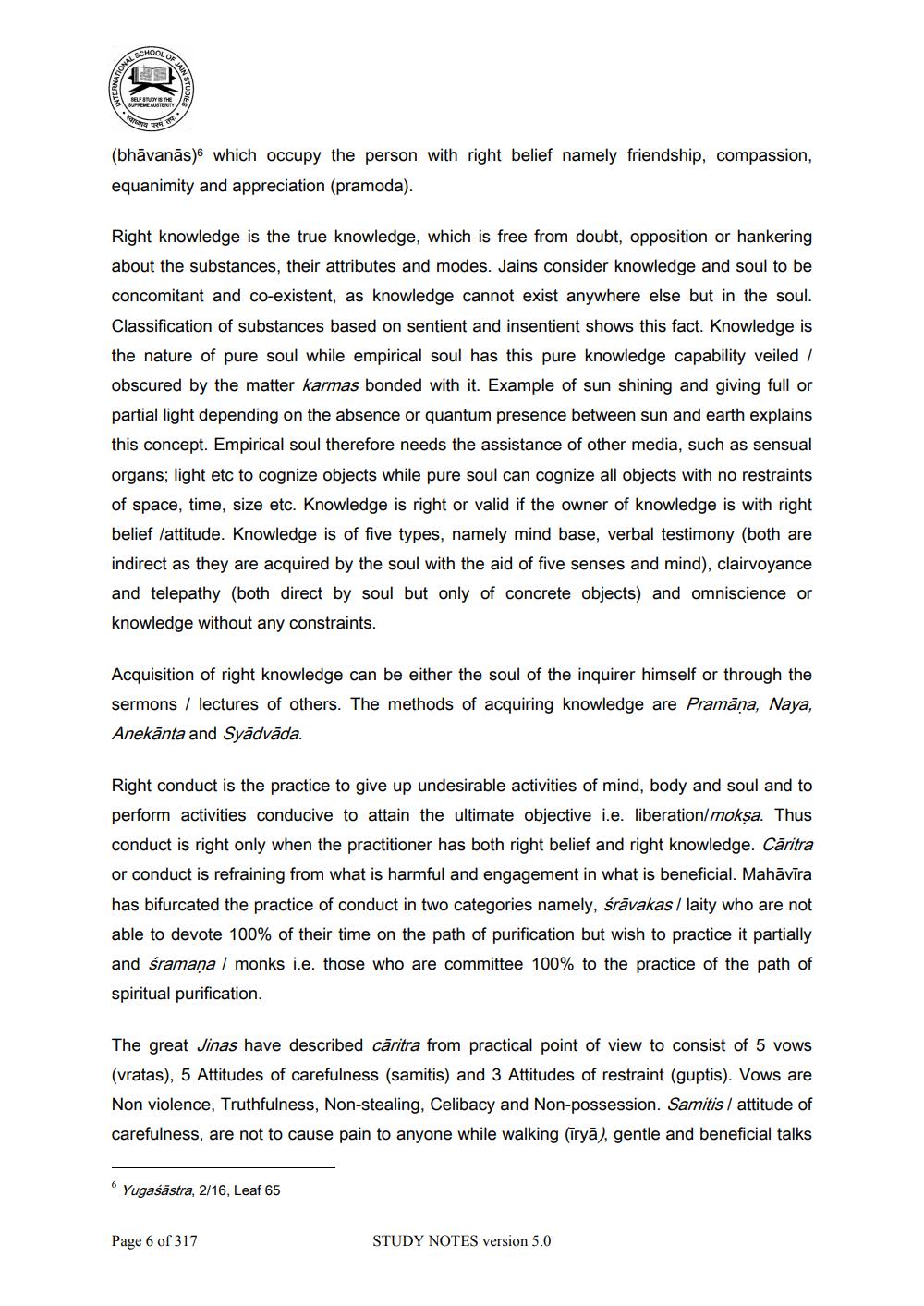________________
(bhāvanās) which occupy the person with right belief namely friendship, compassion, equanimity and appreciation (pramoda).
Right knowledge is the true knowledge, which is free from doubt, opposition or hankering about the substances, their attributes and modes. Jains consider knowledge and soul to be concomitant and co-existent, as knowledge cannot exist anywhere else but in the soul. Classification of substances based on sentient and insentient shows this fact. Knowledge is the nature of pure soul while empirical soul has this pure knowledge capability veiled / obscured by the matter karmas bonded with it. Example of sun shining and giving full or partial light depending on the absence or quantum presence between sun and earth explains this concept. Empirical soul therefore needs the assistance of other media, such as sensual organs, light etc to cognize objects while pure soul can cognize all objects with no restraints of space, time, size etc. Knowledge is right or valid if the owner of knowledge is with right belief lattitude. Knowledge is of five types, namely mind base, verbal testimony (both are indirect as they are acquired by the soul with the aid of five senses and mind), clairvoyance and telepathy (both direct by soul but only of concrete objects) and omniscience or knowledge without any constraints.
Acquisition of right knowledge can be either the soul of the inquirer himself or through the sermons / lectures of others. The methods of acquiring knowledge are Pramāna, Naya, Anekānta and Syādvāda.
Right conduct is the practice to give up undesirable activities of mind, body and soul and to perform activities conducive to attain the ultimate objective i.e. liberation/mokşa. Thus conduct is right only when the practitioner has both right belief and right knowledge. Căritra or conduct is refraining from what is harmful and engagement in what is beneficial. Mahāvīra has bifurcated the practice of conduct in two categories namely, śrāvakas / laity who are not able to devote 100% of their time on the path of purification but wish to practice it partially and śramana / monks i.e. those who are committee 100% to the practice of the path of spiritual purification.
The great Jinas have described caritra from practical point of view to consist of 5 vows (vratas), 5 Attitudes of carefulness (samitis) and 3 Attitudes of restraint (guptis). Vows are Non violence, Truthfulness, Non-stealing, Celibacy and Non-possession. Samitis / attitude of carefulness, are not to cause pain to anyone while walking (iryā), gentle and beneficial talks
6 Yugaśāstra, 2/16, Leaf 65
Page 6 of 317
STUDY NOTES version 5.0




